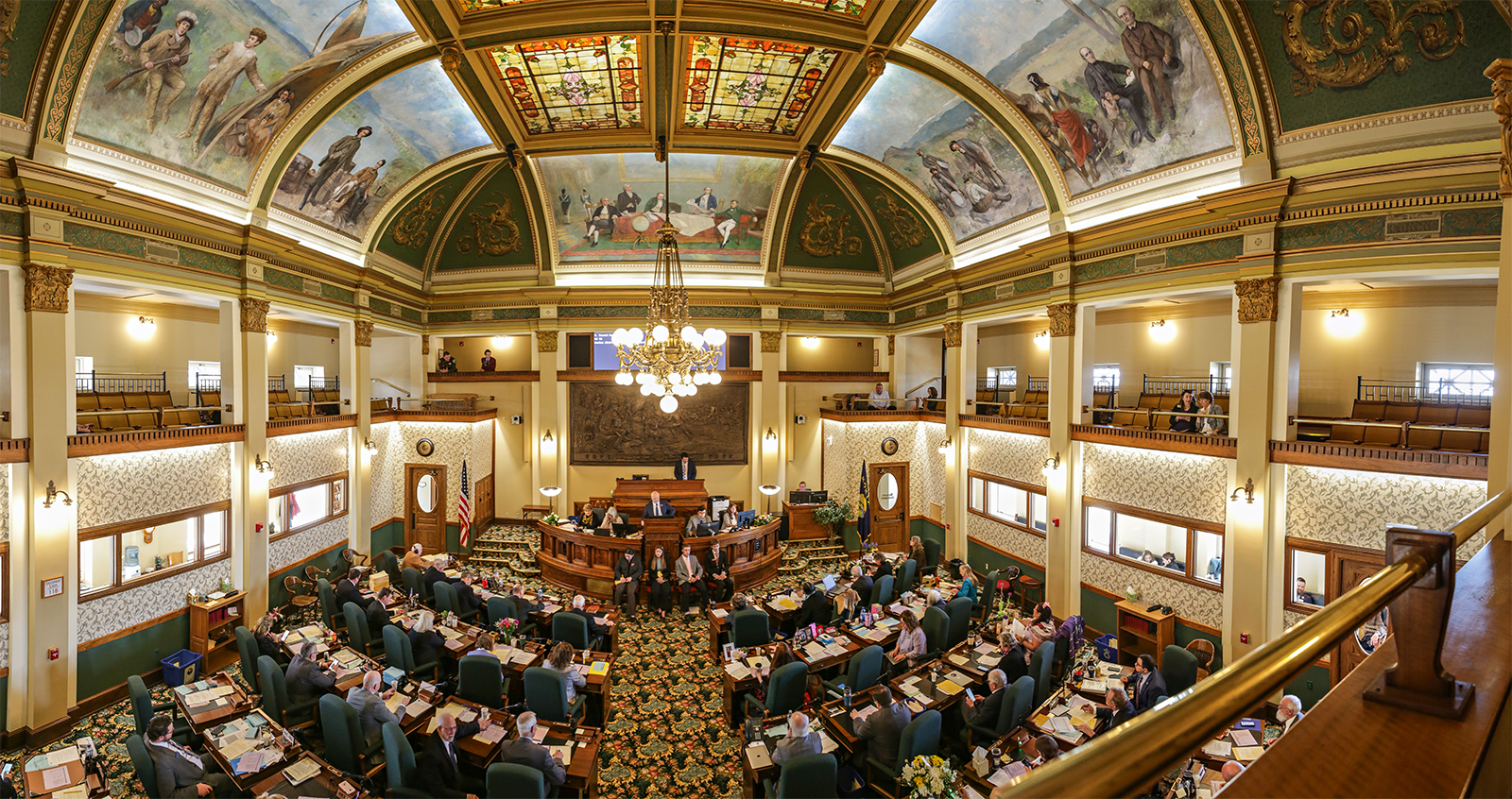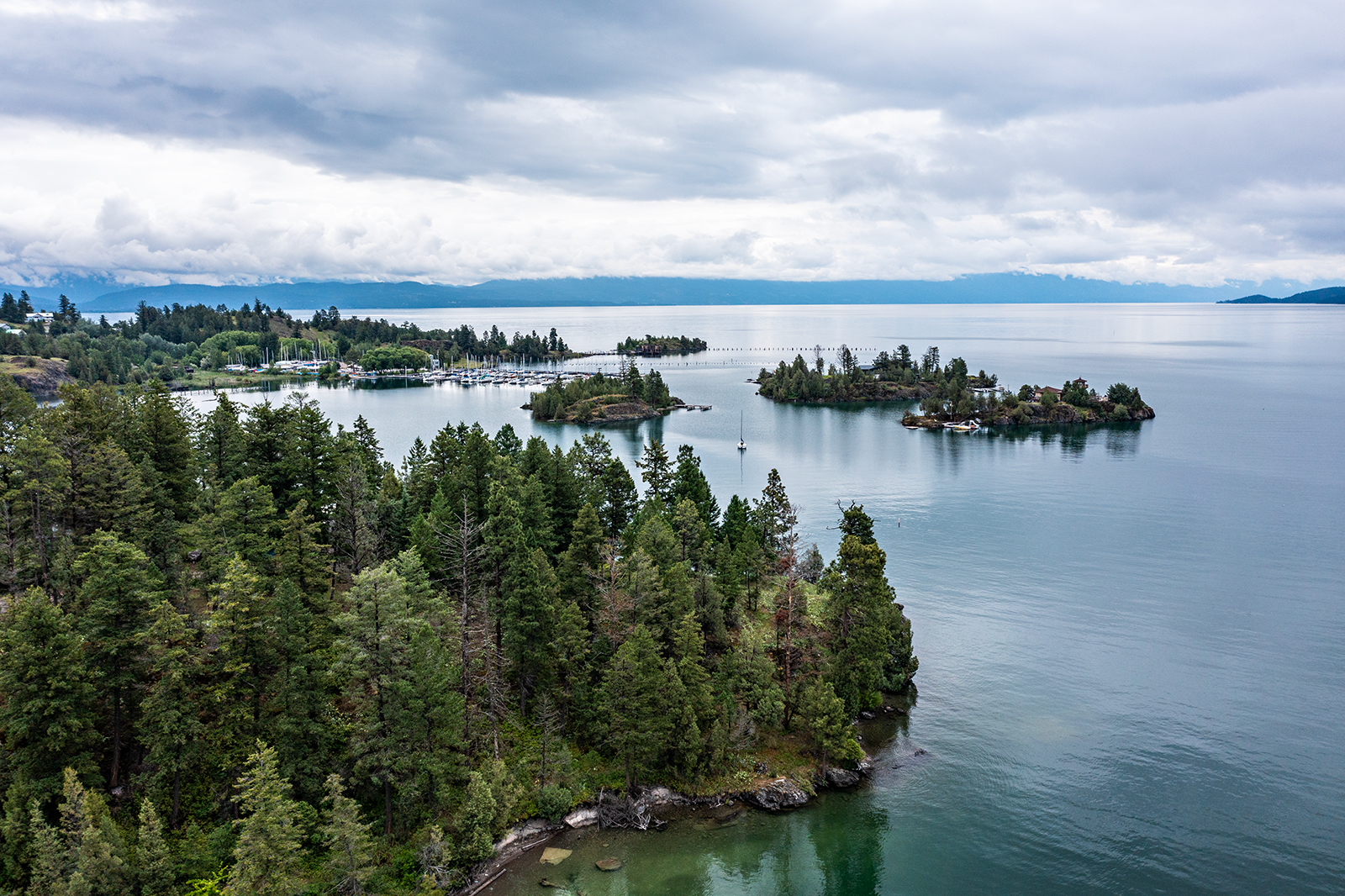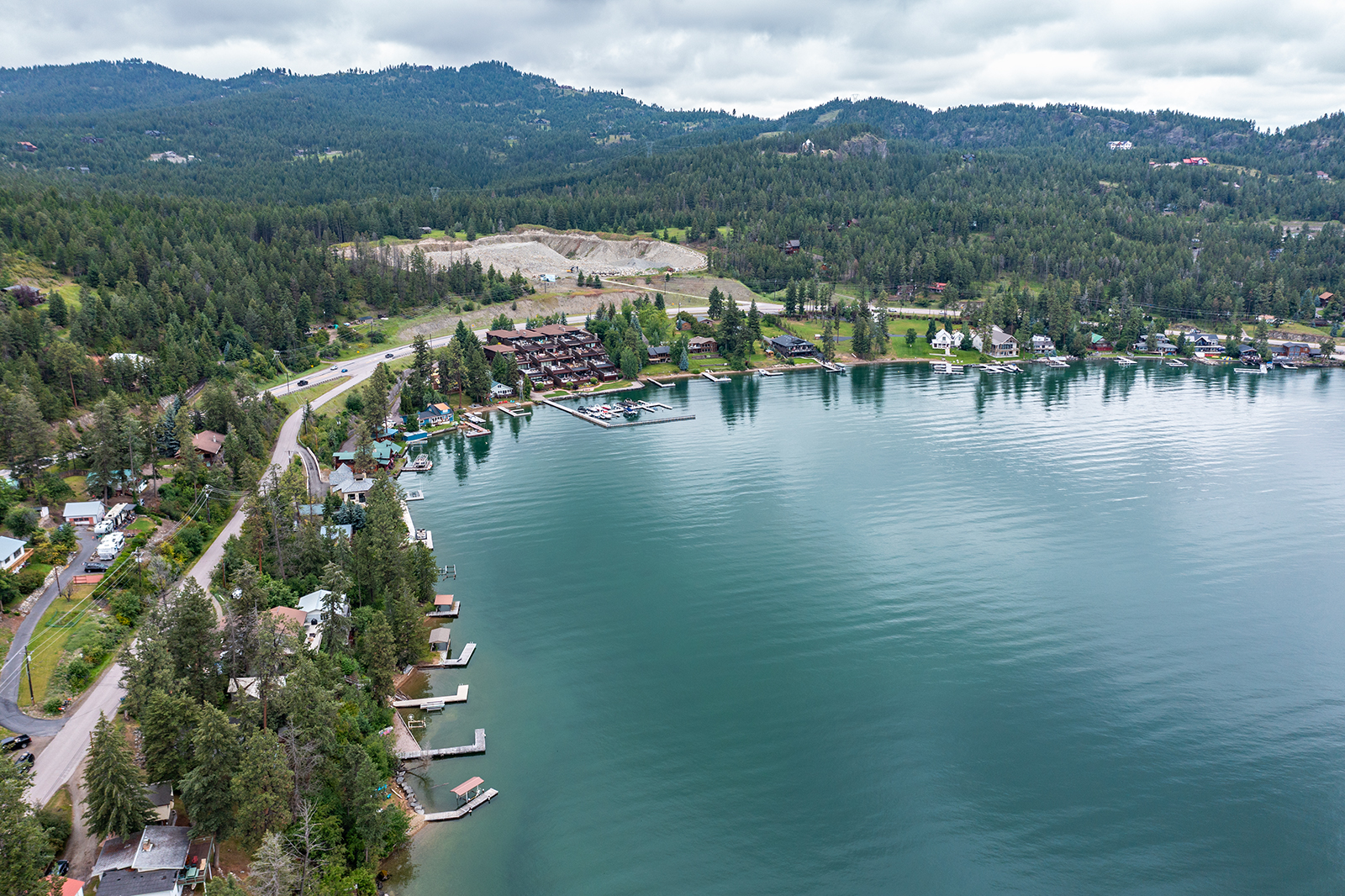Bill Leininger has seen the housing market go up and down over the course of his 30-year career as a Flathead County realtor.
Since 2020, it’s been up — way up.
People flocked to the Flathead Valley during the COVID pandemic, driving a population boom and rising home prices.
During the same time frame, Montanans’ property taxes have skyrocketed. In response, Gov. Greg Gianforte convened a bipartisan task force in January 2024 focused on property taxes. State Sen. Dave Fern, a longtime legislator from Whitefish, sat on that task force.
Fern said property taxes were also a top issue when he campaigned for his seat in 2024. When he got into office, addressing that challenge for his constituents became a top priority.
But both Fern and Leininger acknowledge tax policy is difficult to craft. For one person to see relief, another feels a squeeze.
This year, Fern and his colleagues at the state legislature passed a pair of bills — House Bill 231 and Senate Bill 542 — to reform the state’s property tax code.
The legislature’s solution created a “homestead exemption.” Homestead exemptions are legal protections that allow homeowners to reduce their property tax bills. They exist in several states of all political stripes. How homestead exemptions work in practice differs from state to state.
Montana’s version will lower the tax rate to 0.76% on primary residences and long-term rentals, which it defines as a property rented for at least 28 days for seven months out of the year, and occupied by tenants who “use the dwelling as a residence.” The rate does increase dependent on median property values. Owners of these residences must apply with the Department of Revenue to receive the reduced rate. If a property owner applied for and received the state’s property tax rebates from tax year 2024, they will automatically receive the homestead exemption.
But if they’re receiving relief, who will feel the squeeze?
The answer: short-term rental owners, and those who own second homes. Those types of properties will see an increased tax rate, paying at 1.35%. That rate increase means those types of property owners are primed to see an average cumulative increase of 68% over the next two years on their tax bills.
For Fern, the legislature’s action on an issue he heard about from constituents is a positive. Fern admits the solution legislators arrived at might not be perfect, but he gave lawmakers credit for doing something to alleviate the pressure on everyday Montanans.

“Basically, what I discovered and why I supported this bill and became part of this bill, is because in going knocking on five months’ worth of doors, people liked this idea,” Fern said. “They liked this idea of the homestead exemption. They liked the idea of second homeowners paying for it, they loved the idea of short-term rentals (paying for it).”
Leininger, a broker/owner at Dean and Leininger, sees things differently. As a realtor in Bigfork, he has several clients who have bought or are buying second homes. Since the legislative session, he said the reform has created concern and confusion in his circles. Clients, and in some cases, friends, worry their tax bills will price them out of ownership of vacation homes or generational homes.
“I have heard resoundingly from people — other realtors, past clients who have bought and from people who are buying — and I’ve also heard of real estate transactions that have failed, have terminated with Senate Bill 542 coming out,” Leininger said, referring to the measure revising property taxes.
Leininger said he thinks the legislature’s intent was to make things “fair” in terms of taxation. But in his eyes, the legislature missed the mark.
He points out some communities will experience heavier impacts from the legislation than others.
Namely, Leininger pointed to Gallatin and Flathead counties, which are located near large tourist hubs of Yellowstone and Glacier national parks, respectively. Both counties already have higher median home values than other areas of the state. Flathead County’s median home price sits at $652,090, according to a 2024 midyear economic update from the University of Montana’s Bureau of Business and Economic Research. This means the state collects more money per mill from those counties than others with lower values.
By increasing the property tax rate on second homes and short-term rentals, which also proliferate in those areas, Leininger thinks they’re being hit doubly hard.
Plus, Leininger said, part of the idea of reform was to ensure out-of-staters who own homes in Montana pay their fair share.
But many of the people Leininger knows who own second homes don’t fall into that category. Several are Montanans who’ve worked and paid taxes in the state for decades. Some scrimped, and saved, and managed to afford a vacation home for retirement. Still others own homes that have been in their families for generations.
When you build a house on the lake in the ’70s, when it was no big deal, now you’re paying $40,000 in taxes a year.
Codi Evenson, City of Whitefish short-term rental specialist and generational homeowner
“The intention wasn’t to go after, necessarily, what’s left of the middle-class Montanans having a second home,” Fern said. “We weren’t trying to go after them. That class of people are becoming fewer and fewer — middle-class in general.”
As the legislature defined who they considered “middle-class taxpayers” and considered how it could help them, Fern said, it ended up focusing on those who owned a single home in the state.
But just because somebody owns a second home with a high value, it doesn’t mean they have the cash to keep up with a property tax bill that could more than double.
“I mean, we’re talking tens of thousands of dollars,” Leininger said.
Not to mention, home values aren’t fully realized until the home is sold.
“The emotional part of this is that, should the state have policy that drives people to sell their homes, and when they don’t want to necessarily, there may be limited opportunities, places they can go,” Fern said. “That’s the kind of philosophical thing. There’s a general feeling that, no, that’s not something we want to do.”
But with the state’s property tax system, there are winners and losers. Unless the state pursues a different course of action to bring in revenue, like a sales tax (which Fern is an advocate for), he said the legislature’s job is to do its best to mitigate problems with the system.
One of those families with a generational home is that of Codi Evenson. Evenson works at the city of Whitefish as a short-term rental specialist.
Her family has lived in the Flathead Valley for several generations, and they have a family property on Flathead Lake.

“When you build a house on the lake in the ’70s, when it was no big deal, now you’re paying $40,000 in taxes a year,” Evenson said.
When the new tax code goes into place, the family expects to see a tax bill they can’t pay. Selling the home isn’t an option they want to take, though. She said it’d be hard to lose a home that’s been in the family for so long.
So, one of Evenson’s cousins will permanently move into the family’s lake house. That way, they can apply for the property to classify for the homestead exemption, rather than being classified as a second home. It would mean the family can pay a lower tax rate.
In her capacity with the city, Evenson also works day-in and day-out with short-term rentals, another group of property owners primed for tax hikes as reforms go into place.
The number of short-term rentals increased 25 times over in Montana from 2015 to June 2020, according to a 2021 report from the University of Montana’s Institute on Tourism and Recreation Research.
Short-term rentals are defined in the report as “usually private accommodations that travelers book online through specialized websites such as Airbnb and Vrbo for less than a 30 day stay.”
Tourism counties — including Flathead County — saw some of the biggest increases in short-term rentals by number. As of September 2020, Flathead County had 2,814 short-term rentals. That figure meant the county had the highest number of short-term rentals by volume in the state.
But a tension exists between short-term rental owners and residents in communities where they’ve boomed, Fern said. Residents of those areas tend to blame short-term rentals for a lack of long-term, affordable housing.
That’s a problem Evenson’s colleague, Alan Tiefenbach, a long-range planner with the city of Whitefish, identified. He said the idea of AirBnB and Vrbo was for people to rent out something like an above-garage unit. Then, they would have extra cash to help pay their bills.
“What it turned into is companies and corporations buying out a huge amount of these things and renting them out, which has led to exacerbated housing problems in Whitefish, because every single short-term rental is now a house,” Tiefenbach said. “It can’t be used by somebody that’s a local living here. It’s also raising the prices for everything else.”
He added he thought the property tax reform bills were an example of good housing policy. It surprised him when the legislature passed them. In recent years, he has seen more housing policy he disagrees with coming through the statehouse. He listed the legislature’s 2021 ban on inclusionary zoning as an example. At the time, Whitefish was one of only two cities in the state using inclusionary zoning.
But it isn’t quite so certain whether short-term rentals truly are to blame for a lack of affordable housing. The authors involved in the Institute on Tourism and Recreation Research’s report on short-term rentals, Melissa Weddell and Elena Bigart, found no negative impacts on long-term, affordable housing thanks to short-term rentals.
“What we heard from officials is they definitely expressed some concern,” Bigart said. “There was no data to back it up, so people were like, ‘okay, we feel like this is what’s happening: potentially the short-term rentals take away from this long-term rental market.’ But we didn’t really have any evidence.”
Several other factors — construction costs, labor costs, interest rates and limited land availability — contribute to the challenge of finding affordable housing.
Still, since their 2021 report came out, Bigart said several cities and counties have implemented local policies to regulate short-term rentals for their needs or brought in specialists to track that data, like Evenson.
Whitefish has 405 approved short-term rental permits as of June 19, Evenson said. Those rentals can’t go just anywhere. The city has drawn boundaries where short-term rentals can go.
Despite the projected tax hikes on their properties, Evenson said she hasn’t heard much from short-term rental owners. She thinks it likely short-term rental owners will pass on the cost of increased taxes to consumers. They would do so through raising prices for a stay. In Whitefish, Evenson said, prices for a night are already high, sitting at $340 per night on average.
Bigart made the same speculation as to how short-term rental proprietors may react. Bigart and Weddell also suggested some short-term rental owners may shift to offer their properties for long-term renters.
That’s an option that would make sense in a city like Missoula, Bigart said. An operator could rent the property out to students, who could live there seasonally while attending school. Then, they could still use the property as a short-term rental during the summer. But, they could also apply to qualify for the homestead exemption, by way of having a long-term renter living on the property for at least seven months.
Hearing people talk about workarounds to skirt the new property tax structure creates a bigger question for Leininger.
“I mean, to me, when I hear that, ‘well, maybe there’s a workaround,’ is that really good legislation?” Leininger said.
It’s still too early to tell how loopholes and unintended consequences from the legislation will take shape. But for Fern, this topic isn’t a closed book. On the contrary — property taxes are already an issue he’s considering as he looks ahead to the next legislative session.
“It’s not a conversation that’s finished,” Fern said.
